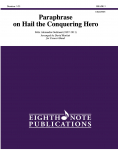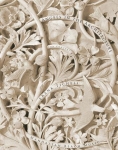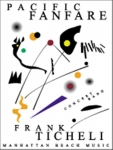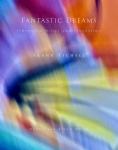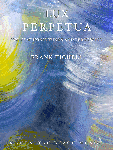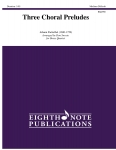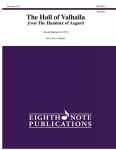DinA3 Full Score included.
Background
In 1992 I composed a concerto for traditional jazz band and orchestra, Playing With Fire, for the Jim Cullum Jazz Band and the San Antonio Symphony. That work was composed as a celebration of the traditional jazz music I heard so often while growing up near New Orleans.
I experienced tremendous joy during the creation of Playing With Fire, and my love for early jazz is expressed in every bar of the concerto. However, after completing it I knew that the traditional jazz influences dominated the work, leaving little room for my own musical voice to come through. I felt a strong need to compose another work, one that would combine my love of early jazz with my own musical style.
Blue Shades
Four years, and several compositions later, I finally took the opportunity to realize that need by composing Blue Shades. As its title suggests, the work alludes to the Blues, and a jazz feeling is prevalent -- however, it is in not literally a Blues piece. There is not a single 12-bar blues progression to be found, and except for a few isolated sections, the eighth-note is not swung.
The work, however, is heavily influenced by the Blues: "Blue notes" (flatted 3rds, 5ths, and 7ths) are used constantly; Blues harmonies, rhythms, and melodic idioms pervade the work; and many "shades of blue" are depicted, from bright blue, to dark, to dirty, to hot blue.
At times, Blue Shades burlesques some of the clichés from the Big Band era, not as a mockery of those conventions, but as a tribute. A slow and quiet middle section recalls the atmosphere of a dark, smoky blues haunt. An extended clarinet solo played near the end recalls Benny Goodman's hot playing style, and ushers in a series of "wailing" brass chords recalling the train whistle effects commonly used during that era.
Blue Shades was commissioned by a consortium of thirty university, community, and high school concert bands under the auspices of the Worldwide Concurrent Premieres and Commissioning Fund. All of the commissioning parties are acknowledged at the end of these program notes.
Print Edition

